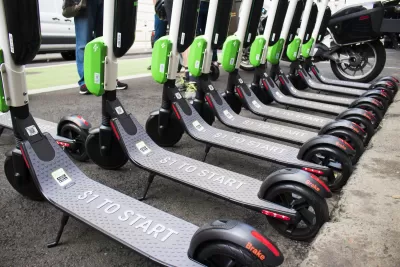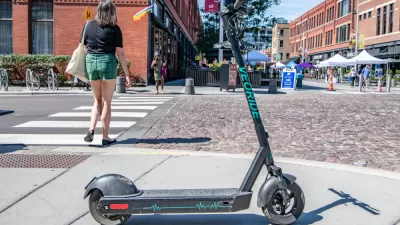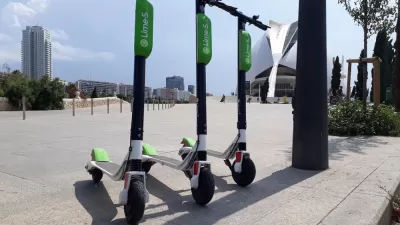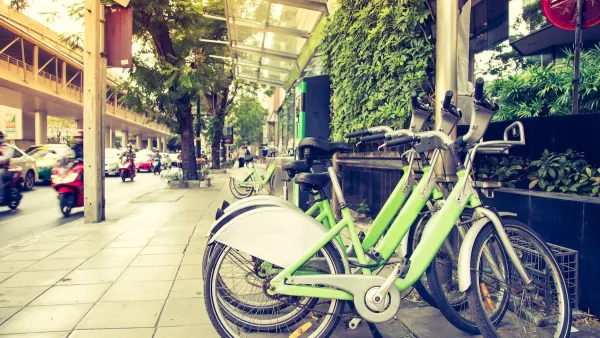Data from the city's e-scooter pilot program show that they might be filling in the first-mile/last-mile gap for riders at all income levels.

Lynda Lopez writes about a new report from DePaul University researchers about e-scooter usage in Chicago during a pilot project that is scheduled to run to mid-October. The study takes a closer look at one day of data collected every two minutes in July.
It finds that operators are generally deploying fewer than the 250 scooters allowed. "Some reasons for numbers being lower than the maximum levels were offered in the study, which included higher-than-expected maintenance issues or a desire from operators to focus on particularly geographic areas," notes Lopez.
Usage during peak hours suggests that riders are using the devices to travel to and from transit stations and stops. The analysis also shows that scooters are not just being used in affluent neighborhoods in Chicago. In some low-income parts of the city, the number of scooters remained above 40 percent.
"The study provided some promising data about the presence of e-scooters and their potential to be an asset for communities underserved by Divvy and transit," adds Lopez.
FULL STORY: DePaul Study: Scooters Are Being Used for Trips to Transit, and in Low-Income Areas

Planetizen Federal Action Tracker
A weekly monitor of how Trump’s orders and actions are impacting planners and planning in America.

Chicago’s Ghost Rails
Just beneath the surface of the modern city lie the remnants of its expansive early 20th-century streetcar system.

San Antonio and Austin are Fusing Into one Massive Megaregion
The region spanning the two central Texas cities is growing fast, posing challenges for local infrastructure and water supplies.

Since Zion's Shuttles Went Electric “The Smog is Gone”
Visitors to Zion National Park can enjoy the canyon via the nation’s first fully electric park shuttle system.

Trump Distributing DOT Safety Funds at 1/10 Rate of Biden
Funds for Safe Streets and other transportation safety and equity programs are being held up by administrative reviews and conflicts with the Trump administration’s priorities.

German Cities Subsidize Taxis for Women Amid Wave of Violence
Free or low-cost taxi rides can help women navigate cities more safely, but critics say the programs don't address the root causes of violence against women.
Urban Design for Planners 1: Software Tools
This six-course series explores essential urban design concepts using open source software and equips planners with the tools they need to participate fully in the urban design process.
Planning for Universal Design
Learn the tools for implementing Universal Design in planning regulations.
planning NEXT
Appalachian Highlands Housing Partners
Mpact (founded as Rail~Volution)
City of Camden Redevelopment Agency
City of Astoria
City of Portland
City of Laramie





























